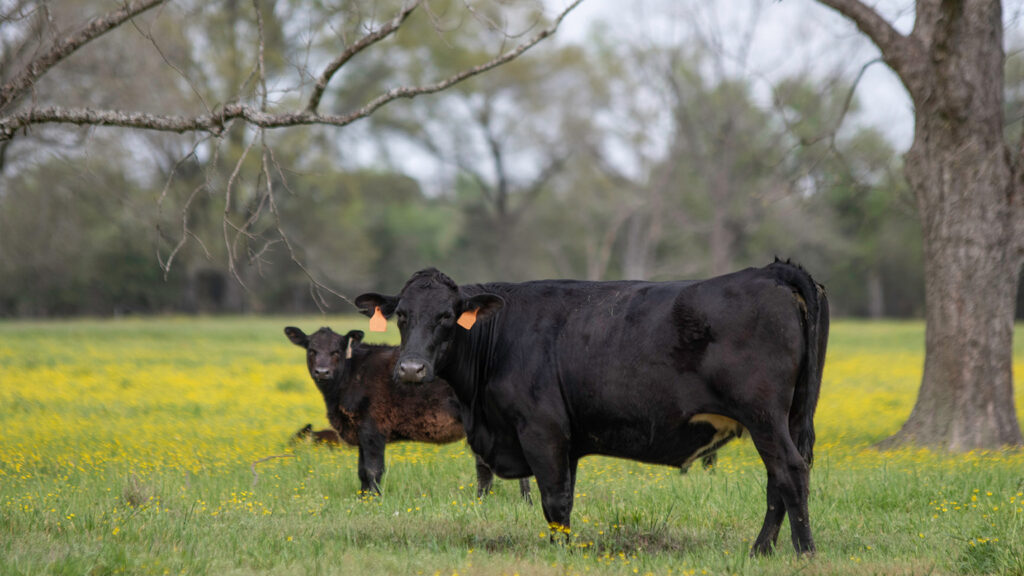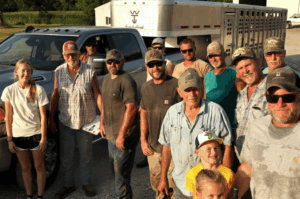Today Farm Action Fund testified at the Ohio Department of Agriculture’s public hearing in Reynoldsburg, Ohio on whether the Ohio Beef Marketing Program, a state-level beef checkoff program, should continue or be subject to referendum.
Since being established in 2014, the Ohio state-level beef checkoff program has levied a dollar tax on the state’s cattle farmers for every head of cattle they sell. This is in addition to the dollar they must pay to the federal beef checkoff program. These mandatory fees are meant to increase beef sales through research and promotional efforts.
“Ohio cattle farmers are being double-taxed by the checkoff, but don’t see any more bang for that extra buck,” said Angela Huffman, a Northwest Ohioan and the vice president of Farm Action Fund, who testified at the hearing. “Checkoff ads don’t distinguish between Ohio beef and beef imported from as far away as Brazil, so Ohio cattlemen and women don’t see an increase in what they are paid for their cattle compared to farmers in other states who don’t pay the extra tax.”
The real beneficiaries of the checkoff are lobbying organizations including the Ohio Cattlemen’s Association and the National Cattlemen’s Beef Association, whose budgets are directly and indirectly subsidized by checkoff funds, and who lobby on behalf of the world’s largest meatpacking corporations.
“Ohio’s director of agriculture has an opportunity to cut this wasteful and abusive beef tax in half,” concluded Huffman. “We’re calling on Mr. Brian Baldridgeto do the right thing and issue a referendum so that Ohio’s farmers can stop paying twice as much as their counterparts in other states.”
Huffman’s testimony was delivered as follows:
The Ohio beef marketing program, or beef checkoff, is failing Ohio’s cattle producers.
Cattle producers across the U.S. are required by law to pay $1.00 per head to the federal beef checkoff program every time they sell a calf, cow, or bull.
Since the 2014 referendum created the Ohio beef checkoff program, Ohio cattle producers have had to pay an extra dollar on top of that — but don’t get any additional benefit for paying double.
Industry-wide consolidation has left Ohio without enough processing facilities, so most producers must ship their cattle across state lines to feedlots or for slaughter. At the time of sale, they’re only able to earn the same commodity price for their cattle as producers who pay just a dollar per head.
And since the promotional efforts paid for with state checkoff fees do not distinguish between Ohio beef and beef imported from other places as far away as Brazil, Ohio producers are not seeing higher sales as a result of their additional taxes.
Producers pay their state checkoff fees to the Ohio Beef Council: a non-government, nonprofit organization that acts as the taxing agent for the state of Ohio. Unfortunately, the vague financial reports from the Ohio Beef Council do not give a clear picture of where checkoff funds go. Without state appropriations or state audits, abuses of these tax dollars are occurring.
While both Ohio state law and federal law prohibit the use of mandatory checkoff fees to influence policy, there is not adequate oversight of the collection, administration, or expenditure of these tax dollars to ensure that the rules are being followed.
We do know that the Ohio Beef Council has an extremely close relationship with the Ohio Cattlemen’s Association, a lobbying group and a state-level affiliate of the National Cattlemen’s Beef Association, or NCBA. In fact, the Ohio Beef Council and Ohio Cattlemen’s Association share the same address and headquarters. The staff members of both organizations are almost exactly the same, and are paid by both organizations.
While there is a prohibition on using checkoff dollars to lobby, by sharing expenses for their internal operations the Ohio Beef Council subsidizes the Ohio Cattlemen’s Association’s policy activities. The Council has contributed in more direct ways as well: in 2022, it gave $14,000 in checkoff funds to NCBA, and contributes at least that amount every year.
It is not clear that the checkoff benefits cattle producers at all: While lobbying groups tout an $11 return on investment from the checkoff, that return goes to the meatpacking industry, not the producers paying into the program.
The clearest beneficiary of the checkoff is the lobbying groups themselves and the global corporations they represent.
At the national level, NCBA lobbies on behalf of its largest members: Cargill, National Beef Packing, and Tyson Foods. Here in Ohio, as the state affiliate of NCBA, the Ohio Cattlemen’s Association follows NCBA’s lead.
For example, they lobbied to repeal Country of Origin Labeling (COOL) for livestock products — a policy that is overwhelmingly supported by consumers and by independent cattle producers.
Another policy priority is to block USDA’s latest Packers and Stockyards rules. These rules are designed to promote fairness and transparency in livestock markets.
70% of NCBA’s operating budget is from checkoff funds, and as I said, Ohio Cattlemen’s Association is also propped up by these funds. Producers who do not agree with these policies should not have to fund organizations lobbying for them.
I encourage the director of agriculture to issue a referendum to give Ohio cattle producers the opportunity to cut this wasteful and abusive beef tax in half.
Media Contact: Dee Laninga, [email protected], 202-450-0094



